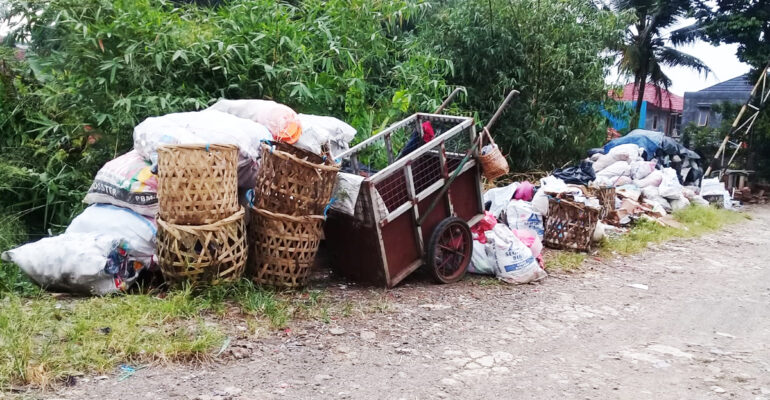Through Posdaya and Jumling, IPB University Students Discover the 12th SDGs Implementation

IPB University students conduct research related to university externalities towards achieving the 12th Sustainable Development Goals (SDGs) in Lingkar Kampus Dramaga Village, Bogor. This research passes to be one of the finalists in the Student Creativity Program (PKM) in the Humanities Social Research held by the Ministry of Research, Technology and Higher Education (Kemenristekdikti). This research is conducted by students from the Department of Resource Economics and Environment, Faculty of Economics and Management, IPB University. The team consisted of Meina Duatidara, Dewi Hartini, and Zakky Muhammad Noor, under the supervision of Prof. Dr. Firdaus.
The Goal 12 in SDGs gives a clear and measurable target for many countries and their people to be responsible of consumption and production. The used indicator in Lingkar Kampus Village are related to waste management, environmentally friendly buildings, food loss index, amount of landfill, green industry, management of chemicals and all types of waste that are environmentally friendly.
Meina, the team leader, conveyed that the existence of higher education institutions should have good influence to its surrounding environment. Many universities, including IPB University through the Research and Community Empowerment Center (LPPM), work together to manage village service programs at the campus circle. One of the programs is the Community Empowerment Post (Posdaya) and Friday Mobile Tour (Jumling).
“The environment around the campus can serve as a reflection to whether the existence of a university has a good or bad impact. This is related to responsible consumption and production, as many universities add more student quota every year,” Meina said.
She added, this could have an impact on the behavior of society that consider that the existence a university can be a way to improve their economy. Thus, consumption and production become uncontrolled, pollution increases, the consumption increases, water use increases, electricity is widely used and other consumption and production activities increase.
Based on the results of the research, 10 of the 17 villages that have been visited achieved 65 percent of the various indicators of achievement of the SDGs. Although waste management is considered not optimal, all villages have achieved more than 50 percent of the indicators, meaning that the achievement of the 12th SDGs is good enough in the IPB University surroundings.
There needs to be a socialisation regarding the SDGs because none of the 10 villages visited by respondents knew about this. Responsible indicators of consumption and production are only limited to the habits or behaviour of respondents in understanding the environment.
“The fact we found can be an evaluation for every universities in Indonesia to measure how far the achievement of SDGs, especially in the village level,” said Meina.
This team hopes that in the future, the community service program from IPB University can further clarify that all parties need to be involved and work together to realize the SDGs. So that people are aware that the environmentally friendly attitude that has been formed well nowadays is not just a habit, but also to save the earth, for the good of all people in the world.


